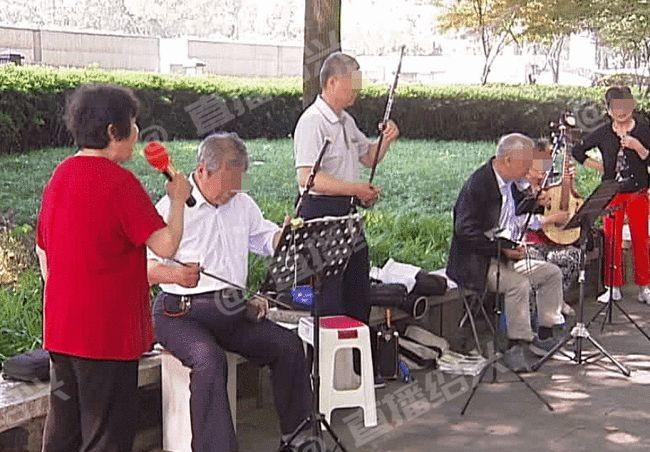
Net map, invasion and deletion
In my memory, the last time I listened to a village drama was more than a decade ago.
One autumn night in the idle time of farming, outside the gate of a family at the entrance of the village. The fence of the earthen rampart leaves an exit, and the freshly harvested bud stalks and small sheds made of fine wooden sticks still smell fresh grass. The autumn rain that had been raining for several days had just stopped for a while, and from time to time there were raindrops dripping down the gaps in the leaves of the bud valley.
A small 15-watt lamp hanging under the eaves emits a dim warm light, the wind of the autumn night is wrapped in rain, the slightly drier bud leaves are fluttering, and the lights are shaking slightly. Under the shed, several people gathered to sing Qin Cavity.
At that time, the old king of La Erhu was in his prime, and he pulled a good erhu. The white-bearded old man with the wreath gave him accompaniment, and the one-eyed accountant and the fat aunt sang the play.
Lao Wang held the erhu in his hand, and while pulling, he pointed out the fingering of the piano to the eldest son. The younger son gathered behind his brother and listened to his father's explanation, shaking his head and drawing empty-handed. The audience sat in pairs, most of them aunts and aunts.
The opening scene is basically "Yuanmen Chopper", which is used to refresh the mind.
Then there is the classic play "Three Niangs Teaching Children" used by the villagers to educate their children and grandchildren, which tells the story of the three niangs who endured humiliation and burdens and raised their sons for their deceased husband Xue Lang.
"Before taking a chair and sitting on the plane, the unfilial slave listened to the mother's words:
Mother for the child day weaving cloth night spinning thread, one or two flowers can earn people how much money?
This lyric became a mantra for grandmothers to educate their disobedient children and grandchildren. The hardships of mothers raising their children mentioned in the play always make us ashamed of making mistakes.
Elderly villagers can simply pull out a few words of drama that have a similar appearance. Most of them have no culture, many people do not know one in big characters, and they will not write their own names in their lifetime, but they can sing the classic plays such as "Blood and Tears Vengeance", "Yuanmen Chopper", "The Case of Beauty" and so on, and the words of the play are not chaotic, and they do not forget a word.
That drama is mostly a talented and beautiful person, first poor and then expensive, filial piety and wife sage and so on to teach people to be good as flowing. Many of the ways in which our children's outlook on life and morality are formed are mostly derived from the teachings of the stories in this play.
I remember most deeply "The Champion and the Beggar".
The story is that two brothers each have a son on the same day. His uncle was good at divination, calculated for a long time, and mysteriously said that the brother's son Wen Long was a nemesis, one gram of his father, two grams of his relatives, destined to be a "beggar body". Wen Feng, the son of his brother, was identified as a "Yuanyuan Life" and would become a great instrument in the future.
In order to avoid disaster, Wen Long's father left home and left home. Wen Long and his mother Liu Shi are dependent on each other. And the aunt often used the excuse to bully Liu's mother and son, because of the harsh hardships of her sister-in-law, after the dissolution of the village middle school, Liu took The old Mr. Wenlong Wang's family. He worked for the Wang family every day, in order to let Wen Long continue to study in order to seek fame. Wen Feng, on the other hand, stopped studying after the dissolution of the academy and spent his days wandering around the casino with his father. A few years later, Wen Long completed his studies, went to Beijing to take the exam and obtained a meritorious name. Wen Feng, on the other hand, was addicted to gambling, and ran away his family property, relying on his parents to beg along the door for a living. Wen Feng robbed passers-by for money, and just plundered his uncle's silver two. Encountered by Wen Long, he rescued his uncle.
The same is Erlang, but because of the mistake of fortune telling in those years, today the "beggar" and "yuan" are just reversed. The old uncle was ashamed and cried out, "Confused! confused! ”
What is destiny? Since there is a life, why are so many people struggling?
If there is a Mandate of Heaven, who is the Heavenly Being? Where does life come from?
Who would believe this ridiculous empty nonsense?